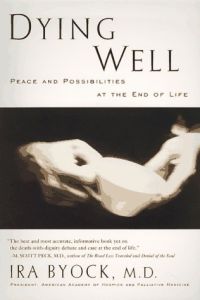Join getAbstract to access the summary!

Join getAbstract to access the summary!
Ira Byock MD
Dying Well
Peace and Possibilities at the End of Life
Riverhead, 1997
What's inside?
Enlightened end-of-life care is the hallmark of high-quality palliative and hospice programs.
Recommendation
A palliative care physician, Ira Byock regularly lectures doctors and nurses about enlightened end-of-life care. He teaches patients and caregivers about the benevolent options that are available for incurably ill people if their caregivers are willing to go beyond the problem-based, solely curative approach that the US medical profession tends to favor. Service groups, religious groups and healthcare providers who understand Byock’s lasting message – the book, still a top-seller, dates back to 1997 – believe dying people should get more from doctors than more disease treatments and pills for pain. He explains what quality palliative care and hospice programs offer and outlines what dying patients and their loved ones should insist on from medical professionals. getAbstract finds that Byock’s manual offers useful information before you have to make end-of-life decisions for a loved one, and it’s an excellent resource if you’re in the middle of that storm.
Summary
About the Author
Ira Byock, MD, currently serves as chief medical officer of the California-based Institute for Human Caring of Providence Health Services, which he founded in 2014. His more recent books include The Four Things That Matter Most (2004), and The Best Care Possible (2012).


















Comment on this summary